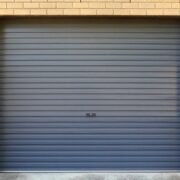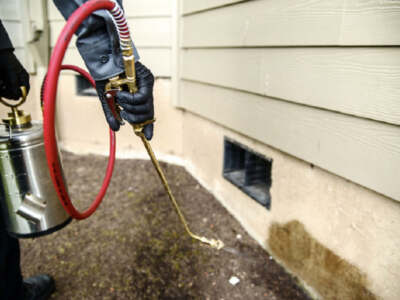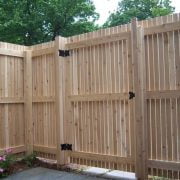According to statistics, waste production in Australia is increasing at an alarming rate. On average, each person in Australia produces about 2.7 kilograms of waste every day, which is equivalent to one tonne of waste per year. Most of this waste ends up in landfill, where it decomposes and emits methane gas – a greenhouse gas that contributes to climate change.
Fortunately, there are many easy ways to recycle at home and reduce the amount of waste that goes to landfill.
How To Recycle Things At Home?
Household waste can be divided into two categories: recyclable and non-recyclable. Recyclable materials can be reused or reprocessed to make new products, while non-recyclable materials are waste that cannot be recycled and must be disposed of in a landfill.
The first step in recycling at home is identifying which materials are recyclable and which are not. Most common household items that can be recycled can be placed in your local council’s yellow-lidded recycling bin, but it’s always best to check with your council first to find out what can and can’t be recycled in your area. These includes:
- Paper and cardboard
- Glass bottles and jars
- Plastic bottles and containers
- Aluminium cans
- Steel cans
- Wind chimes
Some household items can be recycled, but not in your council’s yellow-lidded recycling bin. These items include:
- Hazardous waste, such as batteries, chemicals and fluorescent light bulbs
- Electronic waste, such as computers, printers and televisions
- Oversized items, such as furniture and white goods
These items can be recycled at your local recycling centre or through specialised collection services. To find out where to recycle these items in your area, contact your local council or visit the Recycling Near You website.
Here are practical tips on how you can recycle at home:
Recycle your paper and cardboard
One of the easiest things you can do to recycle at home is to recycle your paper and cardboard. Most households receive a lot of mail and newspapers, which can all be recycled. To recycle your paper and cardboard, place them in your council’s yellow-lidded recycling bin or in the wheelbarrow storage.
You can also recycle other paper types, such as office paper, magazines and cereal boxes. If you have a lot of paper to recycle, you can take it to your local recycling centre or contact your council to find out if they offer a specialised paper collection service.
Recycle your glass bottles and jars
Glass is 100% recyclable and can be recycled repeatedly without losing quality. There are many ways you can reuse your glass bottles and jars. For instance, you can use them to store food, beverages or as vases for flowers.
Some are extra creative in turning their glass bottles and jars into works of art, such as wind chimes, plant terrariums and sun catchers. If you have glass bottles or jars that you no longer need, place them in your council’s yellow-lidded recycling bin.
Recycle your plastic bottles and containers
Plastic is a versatile material that can be recycled into many different products. Whether you have plenty of plastic bags, bottles or containers, recycling them is a great way to reduce waste and help the environment.
You can transform your containers into plant pots, storage containers or lunch boxes. Some are creative enough to turn their plastic bottles into works of art, such as lamps, vases and jewellery holders.
Recycle your aluminium cans
Aluminium cans such as soft drink cans and food cans can be recycled and made into new products. Recycling one aluminium can save enough energy to power a television for three hours. If you have any aluminium cans at home, place them in your council’s yellow-lidded recycling bin.
Recycle your steel cans
Steel cans such as soup cans and pet food cans can be recycled and made into new products. There are plenty of online tutorials and ideas on how to upcycle your steel cans into planters, candle holders and even pencil holders.
Recycle Old Clothes
It will be a world of difference if your old worn-out clothes are recycled instead of dumped in a landfill. There are a lot of ways you can recycle your clothes. You can donate, sell, or even upcycle them into new products.
If you have clothes beyond repair, you can cut them up and use them as cleaning cloths or rags. You can also use them as stuffing for pillows and stuffed toys.
Recycle Your Electronics
With technology constantly evolving, it’s not surprising if you have a pile of old electronics gathering dust in your home. Before you throw them away, consider recycling them instead.
Many electronic items such as computers, printers and televisions can be recycled and made into new products. To recycle your electronics, you can either drop them off at a recycling centre or contact your local council to find out if they offer a specialised collection service.
What Are The Benefits Of Recycling At Home?
There are many benefits of recycling at home, both for you and the environment.
- Saves you money
- Reduces the amount of waste in the landfill
- Reduce pollution
- Protects natural resources
- Create a sustainable future
Can You Earn While Recycling?
You can earn while recycling at home. There are many ways you can make money from recycling. You can sell your recyclables to a scrap dealer or recycle them yourself to create new products.
If you have a lot of recyclables, you can start your own recycling business. This is a great way to earn extra income and help the environment simultaneously.
Final Words
Repurposing, reusing, and recycling materials you already have at home is a great way to reduce your carbon footprint. Not only will you be doing your part in saving the environment, but you’ll also be saving money in the process. So, next time you’re about to throw something away, think about how you can recycle it instead.














Comments